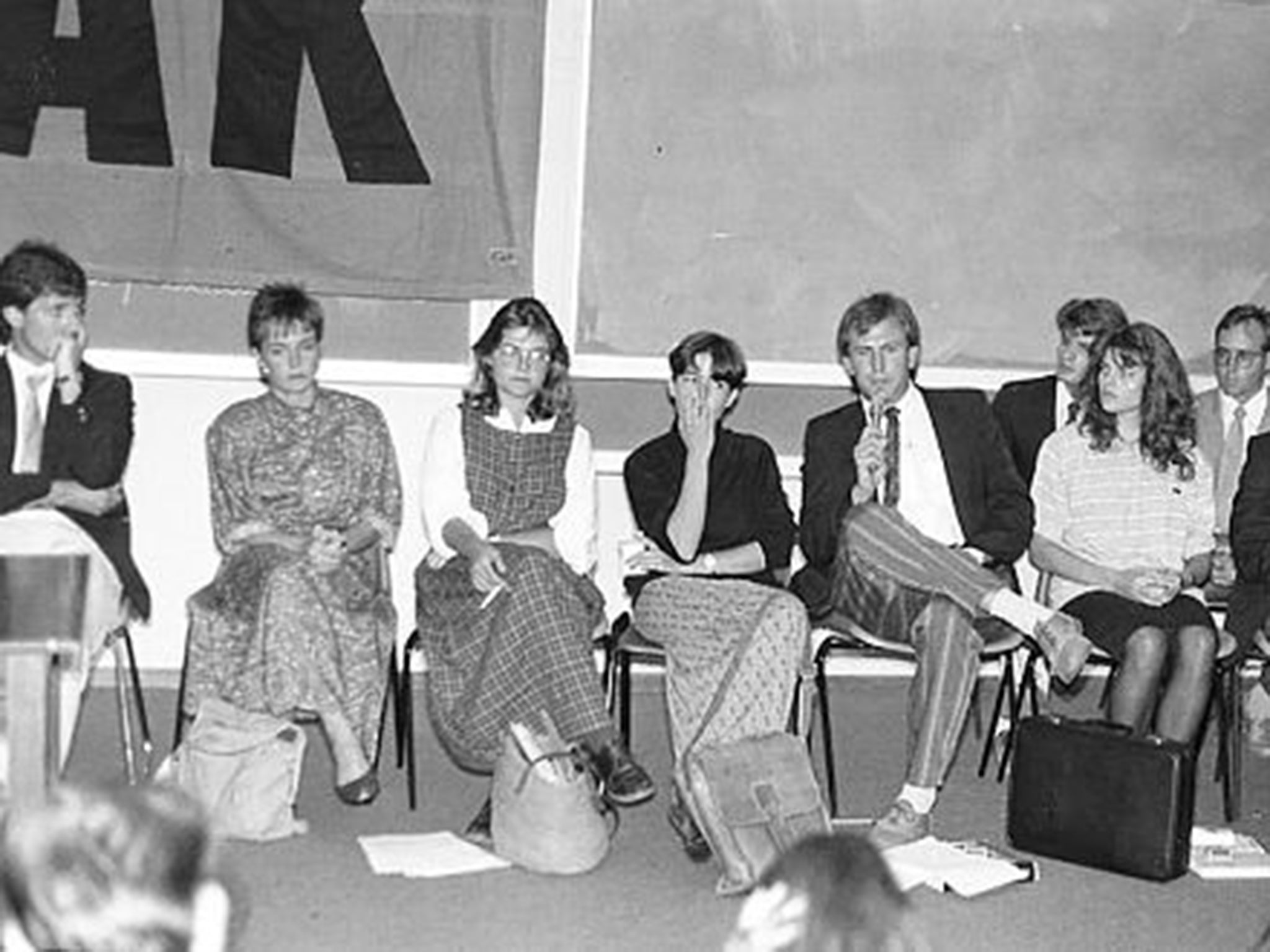Mark Behr: Novelist who confessed to the ANC in 1990 that he had been recruited as a spy by South Africa’s security police
‘There is no version of the truth in which Behr turned double agent,’ said one former colleague

The author Mark Behr was defined by artifice during the first three decades of his life. He passed as a straight Afrikaner when he was really, as he put it, “a closeted queer” more comfortable in English. And he posed as an anti-apartheid student leader when he was also spy for the notorious South African security police.
His story was atypical of either calling. He started life in Tanzania, where his Afrikaner mother had married a bilingual farmer. When Mark was two, the family abandoned home and fled to Natal in a small plane, terrified by the prospect of African socialism.
His father, whom the boy “worshipped”, became a game ranger and his mother a typist, but they struggled financially. Mark and his sister Elize were raised as penniless Afrikaners but the age of 10 he was chosen as a chorister for the English language Drakensberg Boys’ Choir School, before, two years on, returning to an Afrikaans secondary school. He completed two-years of military service in the Marines, and said he loved looking like “an officer and a gentleman” in his white uniform though he wore khaki to fight in South Africa’s border war in Angola.
Behr was inspired by Ayn Rand’s anti-communism but it was money that prompted his most fateful decision. His mother’s cousin, a general in the security police, invited him to become a “source” in exchange for monthly payments and the “opportunity to study at the prestigious Stellenbosch University”.
He jumped at the chance, joining the local branch of the anti-apartheid National Union of South African Students (Nusas), becoming its leader. He also joined the End Conscription Campaign and led a group of conscientious objectors, while launching his writing career with his first published short story.
Behr said that soon after arriving at university he was won over to the cause of those he was spying on. And yet he continued to do his employers’ bidding. In 1989 he followed police instructions to fire a gun through an outside window into his bedroom, running back inside, before emerging, dishevelled and apparently shocked. This ruse convinced his friends and the university administration that he was the victim of an assassination attempt.
But his double life was eating him up, and finally, while visiting Lusaka in 1990, he made a confession to the ANC. What happened next is open to dispute. Behr said he was asked to become a double agent and that from then on he supplied the ANC with information.
However, Nick Borain, who had employed him at the Institute for Democratic Alternatives in South Africa (Idasa), disputed this. “There is no version of the truth in which Behr turned double agent and spied on the South African government on behalf of the ANC,” he wrote. “I know this because I was connected to the underground structures that dealt with Behr, heard his original confession and sent him home safely – a neutralised enemy agent; but also a narcissist and fantasist who could not be trusted to report back to the movement.”
Others were more inclined to believe him, including several of his closest university comrades. Pearlie Joubert, a journalist and former anti-apartheid student leader, was initially “furious and outraged” but later forgave him. She says that after Behr’s return from Lusaka he told a coterie of his closest friends that he was a spy and gave them details of his security police contacts and the money he received (which he later put in an educational charity).
At the age of 30 the gap between Behr’s public and private lives began to close. Living in Oslo, he declared himself to be gay. Soon after his strongly autobiographical novel, De Reuk van Appels was published in Afrikaans. It tells the story of an Afrikaner boy growing up in 1970s South Africa, going to war in Angola and becoming corrupted. Two years on, it was published in English as The Smell of Apples, winning a clutch of literary awards.
Behr returned home in 1996 to attend a conference and spent a weekend with a group of friends. At their insistence he went public, using his keynote conference speech to declare: “It is with the profoundest imaginable regret that I acknowledge that I worked as an agent for the South African security establishment.” What followed was a 4,000-word mea culpa, which prompted some to forgive him and others to accuse him of not telling the full truth.
He went on to lecture in New Mexico before becoming Professor of English Literature and Creative Writing at Rhodes College in Memphis, Tennessee. His second novel, Embrace (a coming-out story about a 13-year-old South African chorister) was published in 2000 and his third, Kings of the Water (about an Afrikaner expatriate who returns to confront the cost of the brutality he’d escaped), in 2009. He died of a heart attack.
“I miss Mark,” said Joubert. “I wasn’t done with having him in my life. I wanted my children to grow up knowing him. There was so much he still wanted to do and say. It feels to me as though he was silenced mid-sentence, and I really wanted to hear the rest of his sentences.”
Mark Behr, novelist, academic, activist and spy: born Mombasa, Tanzania 19 October 1963; died Memphis, Tennessee 27 November 2015.
Join our commenting forum
Join thought-provoking conversations, follow other Independent readers and see their replies
Comments